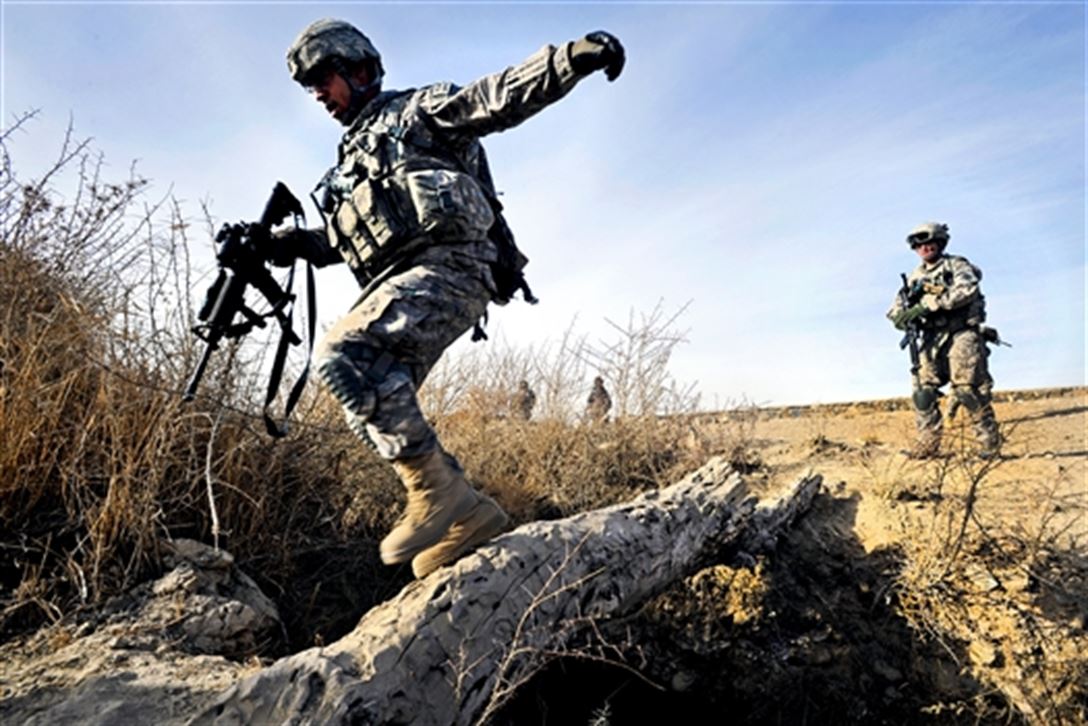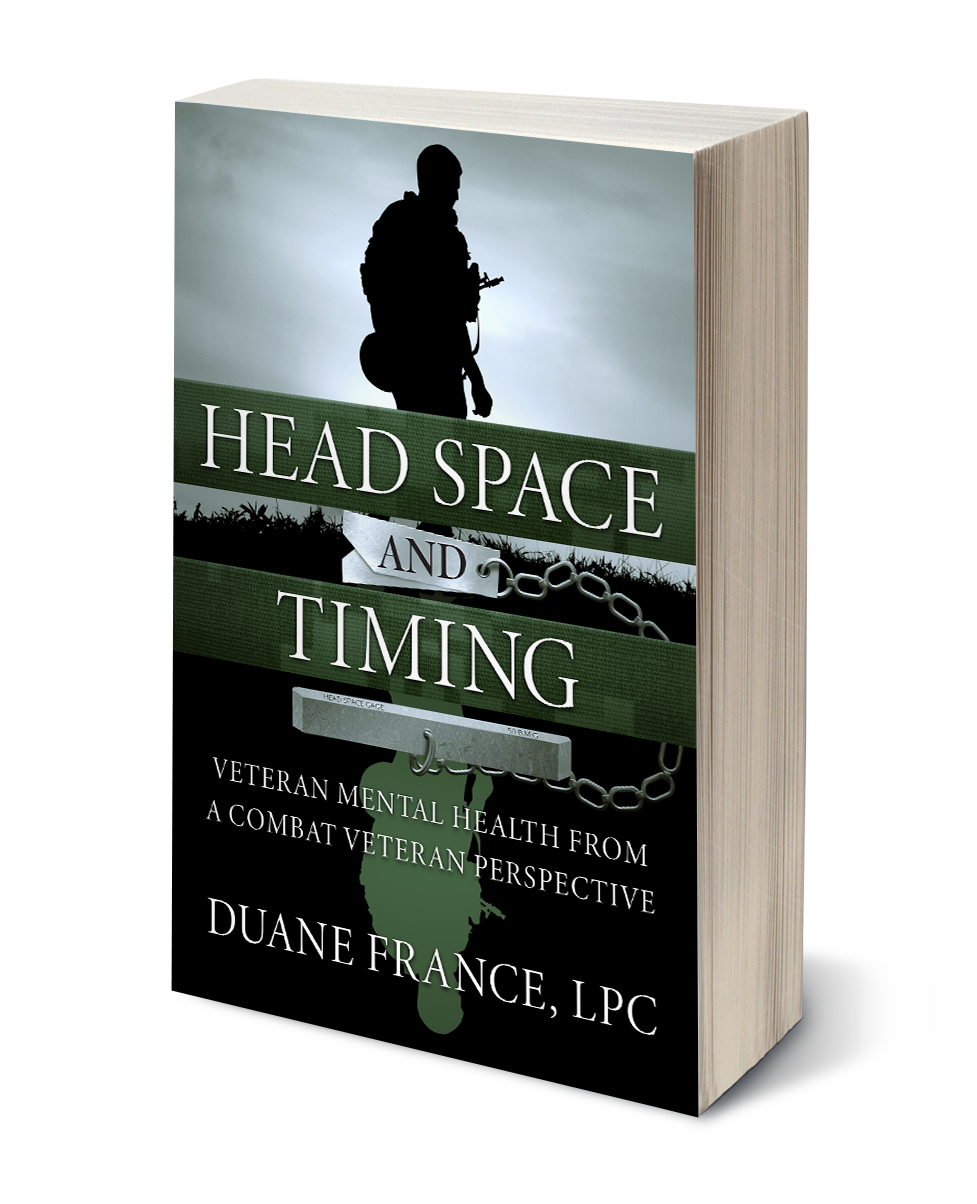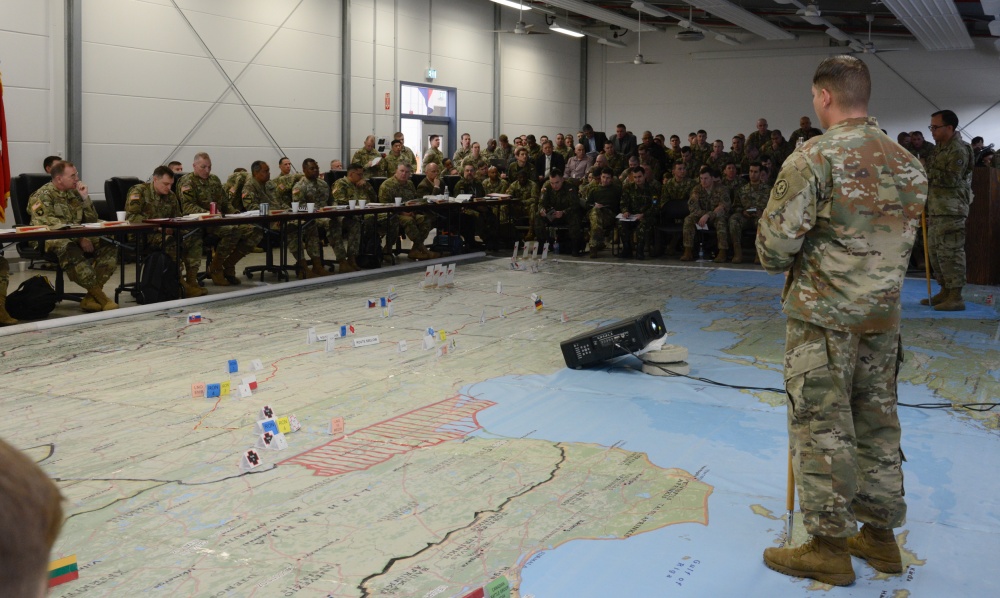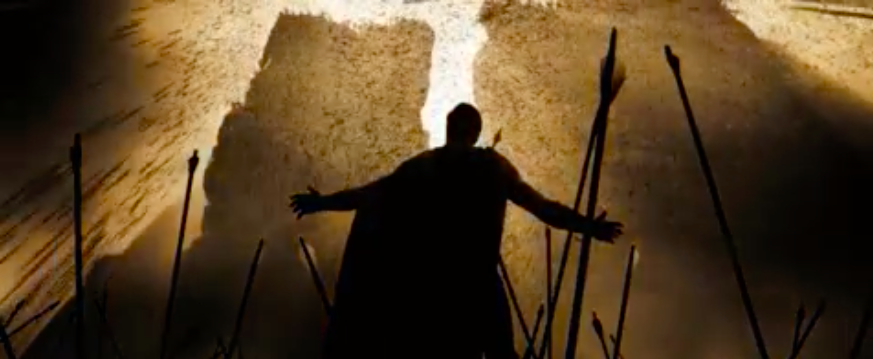
U.S. Air Force Staff Sgt. Kevin Flenoury uses a fallen tree to cross a canal during a mission to Khwazi village, Afghanistan, Dec. 14, 2010. DoD Photo
I’ve had a couple of military friends share some all-to-common news recently; promotion selections in their respective branches have been announced, and it turns out that they were not selected for promotion. Beyond their own personal ambition, they are consistently told by those around them, “you should have been picked,” or “It’s okay that I didn’t get selected, but they made a mistake not selecting you.” The promotion selection process can be discouraging and disheartening. I know from personal experience…I was selected for promotion to Sergeant First Class at ten years active duty, which is fairly quick; then spent the next ten years waiting on the promotion that never came!
Discouragement can occur in our post-military lives as well. Maybe we don’t get that job where the job description looks like it was written just for us. The things we put our hands to just don’t seem to work out. Whatever we’re trying to do doesn’t seem to make a difference…it’s easy to want to quit. Hope is important for us to hold on to, and it’s easy to quit if we don’t expect good things to happen…but discouragement comes from not having the cognitive flexility to both hope and accept the reality of our situation.
Cognitive Flexibility
Cognitive flexibility is the ability to switch between two concepts, or to think about multiple concepts simultaneously. This is also applies to the term “dialectical,” which is defined as “the process of thought by which contradictions are seen as part of a higher truth.” Simply put, it is the ability to believe that two seemingly opposite things are both true. For example, “I am a capable leader” and “I’m not selected for promotion” are seemingly opposites. Cognitive rigidity would lead us to believe that, “Capable leaders are promoted; I’ve not been selected for promotion; therefore I’m not a capable leader.” The opposite can also be true…if we are selected for promotion, then we must be a capable leader. Anyone who has spent time in the military knows that’s not true!
Cognitive flexibility is important to avoid getting discouraged in adverse situations. I’m talking about promotions here, which are important, but they’re not life-and-death situations. Cognitive flexility is significant when we’re trying to make sense of something that happened in combat, or during a difficult ending to a relationship, or a termination of employment. When things don’t work out as we expect, and we don’t have the ability to hold two opposing thoughts in our minds at the same time, we slip into discouragement and despair. Two extreme examples illustrate this.
Concentration Camp Survivors
In his book, Man’s Search for Meaning, Viktor Frankl observed how critical hope is to our health and wellbeing. When imprisoned at Auschwitz, he noticed that his fellow prisoners were dying at a record rate between Christmas 1944 and New Year 1945. He speculated that this was because they had hoped that they would be home by Christmas. When that turned out not to be the case, any hope of life outside the concentration camp faded, and with it, their health.
Frankl identified the close connection between someone’s state of mind, the level of courage and hope that they have, and their physical health. Those prisoners who expected to be home by Christmas, and were let down, were showing optimism (hope for a positive outcome) but cognitive rigidity (if I’m not home by Christmas, I’m never getting home). Elsewhere in the book, Frankl describes other prisoners who simply gave up any hope of being released, who also quickly died. The combination of hope for a positive outcome while simultaneously recognizing the brutal reality of the situation is what allowed Frankl and other concentration camp inmates to survive. This dynamic is also illustrated in the Stockdale Paradox.
Prisoners of War
James Stockdale was the senior Naval officer held as a Prisoner of War in the infamous Hanoi Hilton. Commander Stockdale (later Vice Admiral) was held as a prisoner of war for over seven years. In his book, Good to Great, author Jim Collins asked Stockdale why some prisoners of war survived and others did not. When asked who didn’t make it, Stockdale said,
“The optimists. Oh, they were the ones who said, ‘We’re going to be out by Christmas.’ And Christmas would come, and Christmas would go. Then they’d say,‘We’re going to be out by Easter.’ And Easter would come, and Easter would go. And then Thanksgiving, and then it would be Christmas again. And they died of a broken heart.”
Another long pause, and more walking. Then he turned to me and said, “This is a very important lesson. You must never confuse faith that you will prevail in the end—which you can never afford to lose—with the discipline to confront the most brutal facts of your current reality, whatever they might be.”
This is now considered the Stockdale Paradox: the ability to balance optimism with realism. The ability to have hope for a favorable outcome, but also recognizing the reality of the situation as it truly is rather than wishing it was something that it was not.
Hope, Optimism, and Cognitive Flexibility
As mentioned before, these are two extreme but illustrative examples of the need to have the cognitive flexibility to hold these two seemingly opposite ideas in our minds at the same time. The likelihood of someone reading this having experienced the brutal conditions of a concentration camp or prisoner of war compound are low; but we can recognize the strength in both Frankl and Stockdale and apply these concepts to the hardships in our own lives. We can look at the adverse situations we are in and hope for a positive outcome, but we also have to accept the reality of the situation. Perhaps your marriage is breaking up; you can’t deny that. Maybe you were terminated or rejected for that dream job. Maybe you were passed over for promotion…that doesn’t define who you are or what you’re worth. The true test is how you respond after the negative event…how you remain hopeful and realistic at the same time.
[cl-flipbox link_type=”btn” link=”url:https%3A%2F%2Flp.constantcontact.com%2Fsu%2FFqcekHq|title:Sign%20Up%20Here” back_btn_label=”Receive Updates” back_btn_bgcolor=”#000000″ back_btn_color=”#59d600″ front_icon_image_width=”100%” front_title=”Sign Up for Updates” front_desc=”Enjoying this article? Click here to subscribe and get a free preview of Combat Vet Don’t Mean Crazy” front_bgcolor=”#2e964a” front_textcolor=”#ffffff” back_title=”Sign up here” back_desc=”Subscribe to get added to our content distribution list, and each week you’ll receive our newsletter that contains links to our weekly video, blog, and podcast.” back_bgcolor=”#32a350″ back_textcolor=”#ffffff” valign=”center”]
Do you want to help offset some of the costs of the Head Space and Timing Blog and Podcast? Want to show your appreciation and support? You can put some paper in the tip jar by going here or clicking the button below
 Want to learn more about veteran mental health? The first HS&T Book has recently been released in paperback. Click on the image to the left or this link to purchase the book. See what people are saying about it: This compilation of Duane’s work is key and essential to anyone working with Soldiers and Veterans. Duane provides a senior NCO’s perspective with unmeasurable experience and knowledge on top of his natural gift for seeing numerous levels of humanality and the challenges faced by those who have served our country. I highly recommend it! – A.C.
Want to learn more about veteran mental health? The first HS&T Book has recently been released in paperback. Click on the image to the left or this link to purchase the book. See what people are saying about it: This compilation of Duane’s work is key and essential to anyone working with Soldiers and Veterans. Duane provides a senior NCO’s perspective with unmeasurable experience and knowledge on top of his natural gift for seeing numerous levels of humanality and the challenges faced by those who have served our country. I highly recommend it! – A.C.



1 Comment
Hope for the Best, Plan for the Worst | Head Space and Timing · September 4, 2019 at 4:45 am
[…] also necessary to acknowledge the reality of the situation. Blind optimism is as dangerous as constant pessimism. So instead of the phrase, “hope for the best, but plan for the worst,” I recommend […]
Comments are closed.